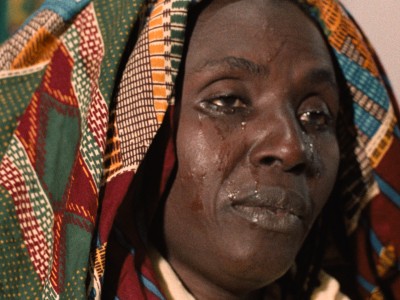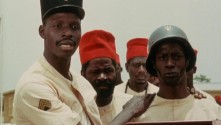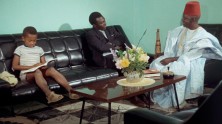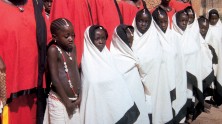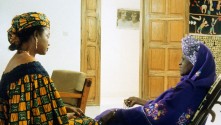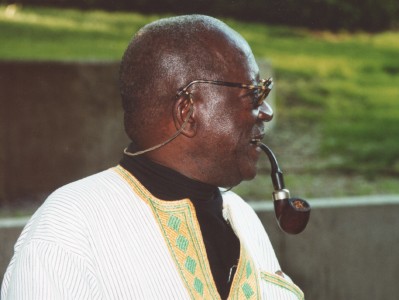
Guelwaar
With Abou Camara, Marie Augustine Diatta, Yama Diedhiou.
Senegal/France/Germany/US, 1992, 35mm, color, 115 min.
French and Wolof with English subtitles.
Print source: HFA
Straightforward in premise yet elusive in structure, Guelwaar exemplifies the style of the auteur’s late period: elongated encounters, interjected by lyrical flashbacks and loosened by a languid pace, carried by superbly controlled tonal fluctuations. The body of Pierre Henri Thioune (Thierno Ndiaye Doss), a murdered Catholic dissident known as Guelwaar, has been mistakenly placed in a Muslim cemetery. The botched burial—an absurd incident that recalls Borom Sarret—causes a religious conflict between Catholics and Muslims, whose grief makes them vulnerable to predatory politicians looking to advance their own agenda. Within a web of sticky confrontations, Sembène interweaves flashbacks of Guelwaar’s life to cross-examine the value placed by others on his burial. Of these family members, friends, and followers, who will remember and continue Guelwaar’s legacy? The ideology of Guelwaar—an opponent to foreign aid as an imperialist tool to diminish economic sovereignty—invokes that of the pan-African revolutionary Thomas Sankara, who had been assassinated only five years prior. But the intimate details that Sembène imagines in Guelwaar’s personality, especially his nature as a distant father and husband, subtly suggest a likeness between the militant thinker and the outspoken director.
